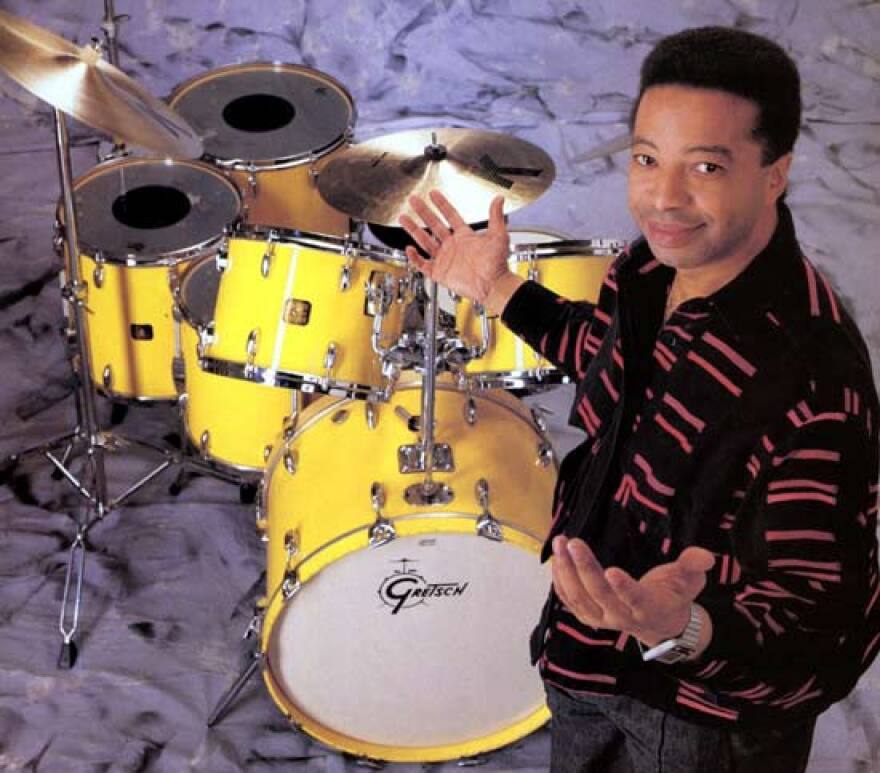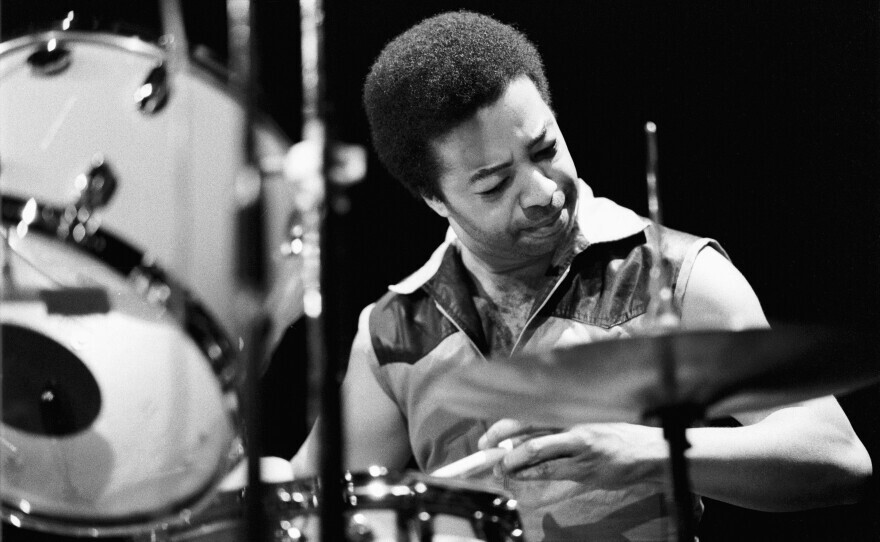Tony Williams already had a secure place on the Mount Rushmore of jazz drumming when he died, of cardiac arrest after routine surgery, on Feb. 23, 1997.
He was only 51, but seasoned in the spotlight, with an imposing track record spanning several decades. He had been a head-turning prodigy with a genius for locomotion, rocketing to fame under the wing of Miles Davis, who later attested: “A drummer like Tony comes around only once in 30 years.”
Still, for all his accolades, Williams carried a certain chip on his shoulder. “The drums are perceived just like noise – banging,” he said in an interview quoted posthumously by DRUM! magazine. “People don’t think that the drums can speak and sing and whisper. Today, the drummers are looked upon as less than musicians, and I am tired of it. That’s what I am interested in doing: educating, not only the public, but the drummers.”
Those intentions found purchase in the generation that succeeded him — and are now about to find direct expression in Spirit & Time, the second volume of the Blue Note Review, a subscription vinyl boxed set from Blue Note Records.
Conceived and curated by the label’s president, Don Was, the Blue Note Review made its debut last fall as a collector’s extravagance and a feat of brand burnishing. Volume One – Peace, Love & Fishing contained a reissued Blue Note LP, an exclusive compilation of new music, a company zine, a pair of lithographs, even a scarf. The limited run of 1,500 copies, retailing for $200, sold out earlier this month.

Volume Two – Spirit & Time will sell for the same amount, exclusively at bluenotereview.com. The production has been increased to 2,000 copies, and Blue Note has made some tweaks to the formula based on consumer feedback. The box will include not one but two reissues from the vault: Africaine, by Art Blakey & The Jazz Messengers; and Patterns, by vibraphonist Bobby Hutcherson. Both albums have been remastered, and will be pressed on audiophile vinyl.
The zine, Out Of The Blue, is back again, as are the lithographs: striking black-and-white Francis Wolff portraits of Blakey and his fellow drummer Elvin Jones. A booklet titled Spirit & Time: Jazz Drummers On Their Art, edited by Elissa Middleton, gathers insights from an array of prominent sources. The package will also include an anti-static record brush and a set of 20 Topps Blue Note trading cards.
But the heart of the new box is a compilation double album that features seven present-day drummers reinterpreting songs from the Tony Williams catalog — specifically, the six albums he made for Blue Note between 1985 and 1992. This body of work, beginning with Foreign Intrigue and ending with Tokyo Live, finds Williams in high creative gear, and in full command as a composer-bandleader.
“He’s saying, ‘I’m Tony Williams,’ followed by the expletive,” suggests Nate Smith, who chose to cover “Life of the Party,” a catchy, hard-boppish calypso. “Coming up in Miles Davis’s group, he was still sort of making a name for himself. At this point, the name has been made. It’s very clear who is in charge, and it’s very clear who wrote the tunes, and it’s very clear who is conducting the environment on the bandstand.”
Like any conscientious jazz drummer, Smith has made a deep study of Williams, focusing mainly on the post-bop innovations of the 1960s and the jazz-rock combustion of the ‘70s. The period under scrutiny here was less familiar to him. Which was also true for some but not all of the other drummers on Spirit & Time.
Brian Blade, who leads his Fellowship band in a blazing take on “Warrior,” first saw Williams live in 1992, with a robust working quintet that included Wallace Roney on trumpet and Mulgrew Miller on piano. “About two minutes into this undulating press roll on the snare drum, I almost didn’t need to hear another thing,” Blade recalls in Out of the Blue. “His impartation was already so heavy, I wanted to go back home to my little grey Remo practice pad and set it on fire.”

One striking thing about Williams in this era is the sheer force of his sound on the drums. Whereas his most celebrated work, in the ‘60s, is the embodiment of mercurial grace — all poise and flux, the perfect post-bop motor — he now literally plays with a heavier hand, often raining single-stroke rolls across his toms. “This is the era of the big yellow Gretsch drum kit,” says Smith. “It’s a much more rock-and-roll sounding kit. He knew that the times and the sound had changed.”
There are scattered nods to that evolution on Spirit & Time. Afrobeat pioneer Tony Allen brings his patented stutter-step groove to “City of Lights,” a tune that originally assumed a swinging pulse. Chris Dave and the Drumhedz nudge the ballad “Native Heart” from its post-bop moorings and into R&B territory, just as Eric Harland does with “Takin’ My Time,” featuring keyboardist James Francies. But the most radical reinvention comes courtesy of GoGo Penguin, who recast “Creatures of Conscience” from a bombastic drum feature to a sleek rainy-day reflection.
Concluding the compilation, on Side D, is a previously unreleased performance from the same concert that yielded Live in Tokyo. It’s a version of “Juicy Fruit,” a minor-key shuffle that originally appeared on the 1990 studio album Native Heart. Roney and tenor saxophonist Bill Pierce are both in strong form, and Williams sounds like an oncoming cyclone.
By design, none of the music from the Blue Note Review is available on streaming services. But the label has created a Spotify playlist of the original versions of these songs, from across several albums.
“Now that I’ve discovered this period of Tony, I kind of dig it,” says Smith. “It feels to me like he’s really letting go of the pressure of dragging all of that history, being this wunderkind. He always played with conviction and power, but there’s an abandon here that’s not as present in his earlier playing. It sounds like he’s having fun.”
For more information about Blue Note Review: Volume Two – Spirit & Time, visit bluenotereview.com.



